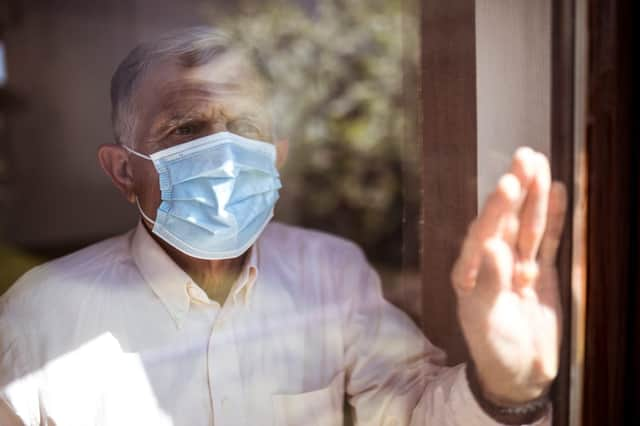The latest government advice on shielding in England - and when the programme could end


Matt Hancock has promised that those shielding from society due to the coronavirus will soon be told when they can stop isolating.
Since the beginning of March 2.2m people in England particularly vulnerable to coronavirus have been required to ‘shield' from the rest of society, though some measures were loosened earlier this month.
Advertisement
Hide AdAdvertisement
Hide AdBut the Health Secretary has hinted that those isolated will be provided an indication of when they can begin interacting with others in the near future.
When will shielding end in England?
Reports have circulated that the government may be looking to end the shielding programme at the end of July.
A government spokesperson has denied the claims made by the Health Service Journal (HSJ).
The spokesperson said: "We've always said we will be looking at making life easier for those having to shield, when it is safe to do so.
Advertisement
Hide AdAdvertisement
Hide Ad"We are considering the next steps for the shielding programme beyond the end of June, based on the latest medical and scientific advice.
"No final decision has yet been made and we will set out more detail shortly."
Matt Hancock has provided more assurance to those who have been isolated for over three months.
Mr Hancock told BBC Breakfast: "I want to say to your viewers, if you are in the shielded category we will announce very soon what the plans are and we will write to you personally through the NHS so that you can get the direct clinical advice."
Advertisement
Hide AdAdvertisement
Hide AdHe said those who have been shielding indoors have "sacrificed an awful lot" but added: "We want to do this properly based on the clinical advice."
What are shielding rules in England?
The current rules for those in the shielding category in England are as follows according to the government website.
1. If you wish to spend time outdoors (though not in other buildings, households, or enclosed spaces) you should take extra care to minimise contact with others by keeping 2 metres apart.
2. If you choose to spend time outdoors, this can be with members of your own household. If you live alone, you can spend time outdoors with one person from another household (ideally the same person each time).
Advertisement
Hide AdAdvertisement
Hide Ad3. You should stay alert when leaving home: washing your hands regularly, maintaining social distance and avoiding gatherings of any size.
4. You should not attend any gatherings, including gatherings of friends and families in private spaces, for example, parties, weddings and religious services.
5. You should strictly avoid contact with anyone who is displaying symptoms of COVID-19 (a new continuous cough, a high temperature, or a loss of, or change in, your sense of taste or smell).